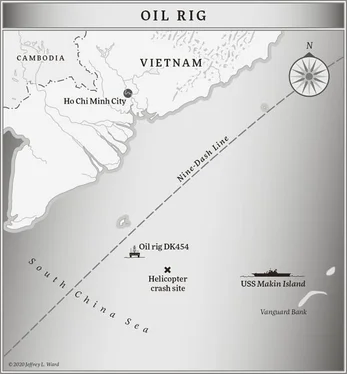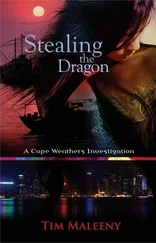“Forgive me, Major,” the lieutenant said. “But do you not believe this is a bit far-fetched?”
“The Americans love such plans,” Ren said. “They believe life is a movie and they are the stars. Contact the checkpoint in Tashkurgan at once. Have them stop everything that moves—trucks, taxis …” He jabbed the air with his finger. “I do not want so much as a donkey cart to get past without a thoroughly invasive search. And alert the border guards to increase patrols leading up toward the pass.”
“Of course, Major,” the lieutenant said. “It seems foolish for the Americans to place these pods where their weapons customarily go. Their aircraft will be completely defenseless.”
“Ah,” Ren said. “Do not forget the ‘ghost readings’—helicopters flying in and out of radar contact. They are surely there for defensive purposes. But we will be prepared for that as well … Speaking of helicopters, find me one immediately. I wish to be there when this killer is apprehended and Hala Tohti is retrieved.”
52
Secretive and compartmentalized as the Central Intelligence Agency was, it took a grand total of two hours from the time Monica Hendricks and her team began their first interviews for the buzz of the mole hunt to reach virtually everyone at Langley—and a good portion of the CIA stations around the world. Savvy officers already knew something was up. Overnight, silos had dropped down over certain information, making it next to impossible for some to do their jobs. In the Great Game of spy vs. spy, it was often enough to make one’s opponent believe they had a traitor in their midst, forcing them to waste precious time and resources chasing shadows. Viable intelligence operations against the Soviet Union had very nearly ground to a halt during Angleton’s tenure in CIA.
Director Foley’s mandate for ELISE had been clear: Catch the rat, but don’t set the entire ship on fire to do it.
Hendricks knew word would get out as soon as she began. She kept a weather eye for rats looking for a way off the boat. People, being what they were, almost all had something they wanted to hide. A spate of surprise dates on the flutter—the polygraph—put everyone on edge.
Monica asked the same questions at each pre-polygraph interview, first and foremost: “If you were going to spy for China, how would you go about it?” The answers displayed two antipodal schools of thought. “This is a horrible, terrible, awful, no-good thing for our agency. Let me help however I can.” Or “I am deeply offended that you would think I, of all people, could possibly be a spy! After all I’ve done for the Agency, for my country!”
Her last interview for the day was with a redheaded grandmother Hendricks had worked with on and off for almost two decades and who was now the chief over Near East. She’d smiled politely, batted her ginger lashes, and said, “I’d shove this question up your ass, Monica.”
Oddly, there were few moderates. One analyst, a guy named J.T., had his spy game all plotted, pointing out myriad security weaknesses and how he’d get the Chinese to use cryptocurrency to pay him instead of dead drops or brush-pass handoffs. Hendricks and Li both concluded that this guy was either such a brilliant criminal mastermind that he was able to line out his entire conspiracy without batting an eyelash or he had no guile at all and simply answered the question as directly as they had posed it to him.
Hendricks put J.T. in the “maybe” box, with a few of the other supercompliant “helpers.”
She found it difficult to trust either camp merely on the face of their indignation or volunteerism. It was not lost on her that Soviet spy Rick Ames had approached the counterintelligence team conducting the mole hunt (for him) and demurely asked if there was anything he could do to assist.
In law enforcement, a strong denial after confrontation was expected from a truly innocent party—but CIA officers were taught to lie, to circumnavigate the truth. They drummed it into you at The Farm: You must learn to deceive everyone you meet—outside of the Agency. In other words, lie to everyone but us .
Polygraphs were passed. Egos were bruised, but they were no closer to identifying the mole.
And then Joey Shoop and Leigh Murphy were murdered. Hendricks was aware of Murphy’s recent connection to Adam Yao, so ELISE turned its focus to anyone who had knowledge of operations in Albania.
Fred Rask’s recent cable bitching about the violation of his turf was already making the rounds with the brass on the seventh floor. Most laughed it off as another Rask writ, writ by Rask , an homage to the old John Wayne movie. Some, however, were not amused at Murphy’s behavior. There were only a few, but these bosses had bailiwicks of their own to consider, and didn’t warm to the idea of case officers locking them out of activities.
Hendricks called Foley for nitty-gritty, and found Yao had called Murphy to interview the Uyghur. Foley gave no details about the contents of the interview, other than to say it yielded enormous fruit, while at the same time pissing off Rask enough that he fired off the missive.
Hendricks had worked with Rask a half-dozen times, the last in Tokyo, where her counterpart with Japan’s national intelligence service had privately observed that Rask had “sanpaku eyes” where the sclera was visible on both sides of the iris and beneath— three whites . Crazy eyes. Hendricks had noticed it, too, along with his truculent nature and tendency to color himself as the most vital component of every operation in the after-action reports.
Freddie Rask was, in fact, third on Hendricks’s list of people in the Agency who rubbed her the wrong way.
Rather than beginning with him, she’d called Vlora Cafaro, the case officer who’d been with Murphy earlier the night she was killed.
She conducted the interview via SVTC, a secure video teleconference. Admiral Peter Li was present, listening, observing, but off-screen.
Still reeling from the death of two coworkers, Cafaro looked as if she’d slept in her clothes. Her eyes sagged. She rocked slightly in her chair, obviously trying to stay alert. Hendricks suspected she had a bit of a hangover in addition to the exhaustion. Above it all, the young case officer was open and cooperative, firm in the knowledge that she had nothing to hide. She also made it clear that she planned to exact swift vengeance when she figured out who had murdered Leigh Murphy. Hendricks couldn’t blame her there. She’d served as one of Leigh Murphy’s class mentors during a short rotation at The Farm. They’d never worked together, but she seemed like a great kid.
It was clear that Cafaro was fiercely devoted. Hendricks had friends like that. Hell, Li was one, and he wasn’t even CIA.
Cafaro went on for two full minutes about what she would do to the killer/s, and that her chief of station probably wasn’t even going to do anything about it, he was such a fat worthless son of a bitch. Fatigue was an excellent truth serum, and this woman was so tired, notions from her heart came straight out of her mouth.
Hendricks glanced at Li, who shook his head, having nothing to add.
Hendricks put both palms on the table, pushing back in her chair slightly. “Thank you, Vlora,” she said. “I have one favor to ask of you before you get some much-deserved rest.”
Hendricks scribbled a couple notes on her legal pad while she waited for the SVTC call to connect.
The chief of station Albania glared at the camera as if he wanted to climb through it to Hendricks. He rubbed a hand across his face and frowned, scrunching his nose as if he smelled something rotten.
“Monica, I have a lot on my plate right now. We need to make this short.”
Читать дальше











![Александр Ирвин - Tom Clancy’s The Division 2. Фальшивый рассвет [litres]](/books/417744/aleksandr-irvin-tom-clancy-s-the-division-2-falsh-thumb.webp)
